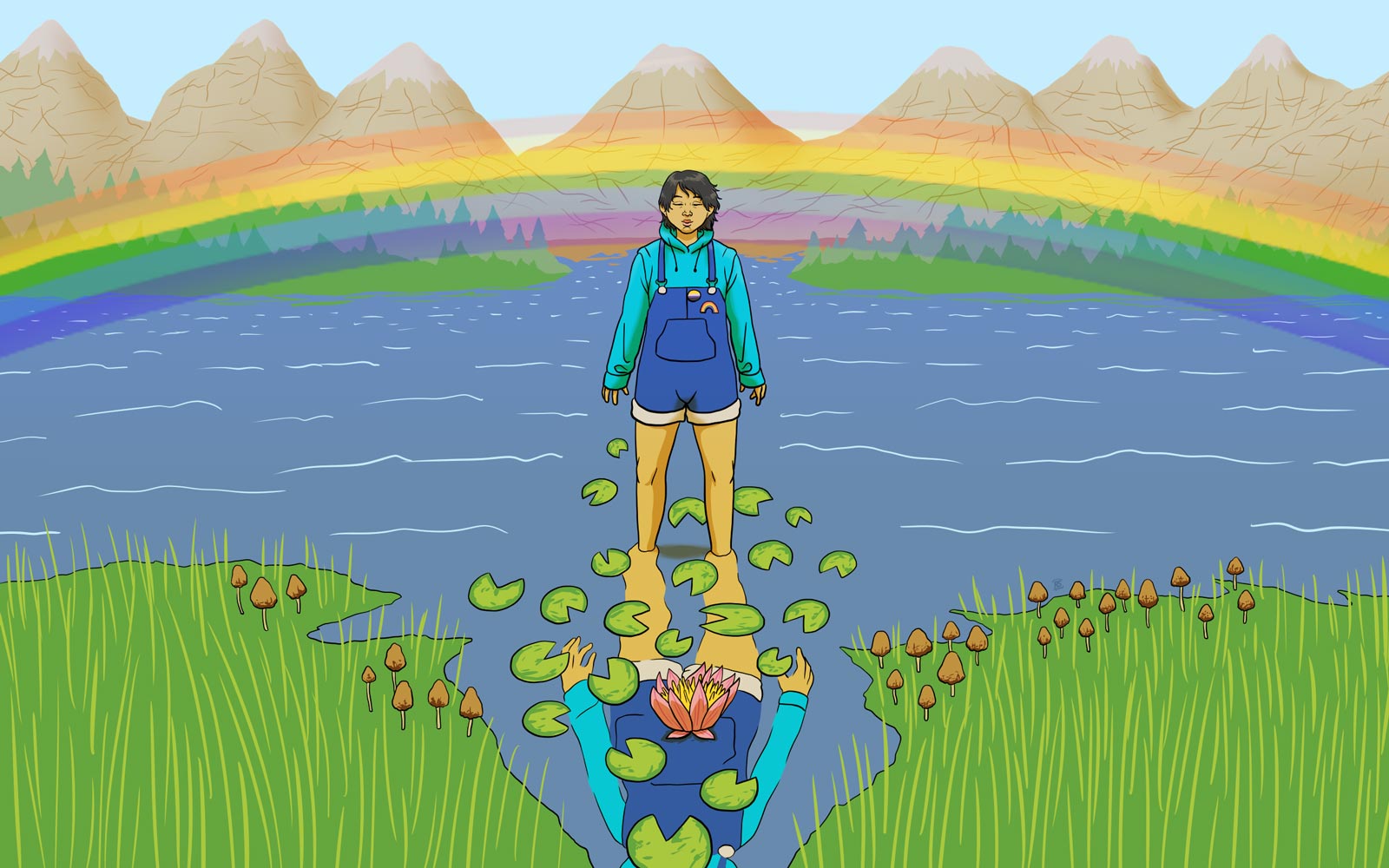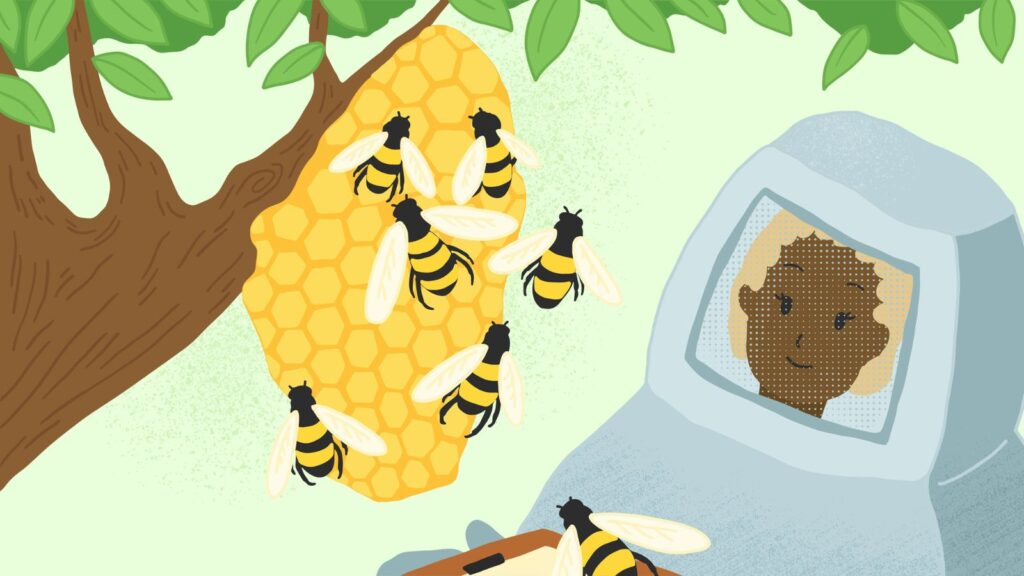In the United States and increasingly more countries, June is pride month: a month where major retailers push rainbow printed everything and queer folks have the opportunity to come together in celebration and remembrance of the triumphs and tragedies of their history. But now it’s July: Target has packed up their rainbow pinwheels, the parades are over and still, queer communities are in need of support and resources. Even the COVID-19 pandemic — a life-altering experience for everyone — disproportionately impacted members of sexual minority groups. As psychedelic researchers explore the expansiveness of plant medicines, the interplay of psychedelics and queerness becomes more and more pronounced. Do psychedelics and queerness go together? And could psychedelics provide support for sexually marginalized groups? Let’s go over some helpful terminology.
Sex vs Gender vs Orientation
Advocating for a more inclusive world includes updating the constantly evolving language surrounding sexuality and gender. Queer-identified people have varied interpretations of the identifying vernacular, but largely: queerness is an umbrella term used for people who are not straight or cisgender. Sex and gender are two different facets of a person’s identity and experience.
Sex refers to the genetic and hormonal factors that produce either male or female reproductive systems. This is what doctors assign at birth based solely on the physical characteristics present. Some people are born with physical anatomy that does not fit the binary of male and female genitalia: medical professionals refer to this as intersex. Sometimes the variation in physical anatomy is present at birth, but other times the variation isn’t noticed until puberty or when trying to conceive.
Looking past physical characteristics: gender is a combination of people’s thoughts, behaviors and their performance of the socially constructed roles and expectations assigned to their gender. Identity is a personal construction and gender is one of the many ways that people express their inner selves to the world. Often, the sex assigned at birth influences the way that people are socialized on the journey towards finding their authentic expression. This socialization is powerful and deviation from gender norms opens people up to discrimination. Sex does not equate to gender and though the sex assigned at birth influences socialization, it does not confirm a person’s identity. Neither sex nor gender exists in the exclusive binary of male and female.
Part of the exploration of the sexual self is a relational expression or sexual orientation.
Sexual orientation refers to a romantic, sexual and emotional pull towards certain people. There is a spectrum of ways that sexual orientation presents itself and behavior does not always dictate someone’s range of sexual attraction. The LGBTQ+ or queer community is a diverse conversion of many different genders, romantic and emotional expressions.
Psychedelics and Self
The LGBTQ+ community finds itself subject to persecution and marginalization throughout history. At least 70 countries still have some homophobic laws and sexual minority groups are put under unique stresses. For queer folks, assimilation into the largely heteronormative society is a challenge and they are forced to reckon with their relationship, to self, body, desire and power in ways that cis-gendered straight people do not. The predominant narrative paints love, intimacy and connection as only sanctionable in heterosexual, cis-gendered, monogamous relationships. This is changing as more diverse voices are invited into the conversation, but queer folks still have to grapple with understanding their identity in the context of societies built with more rigidity surrounding gender and sexuality.
While attempting to understand the complexities of self, LGBTQ+ people must also navigate the oppressive legal and societal structures that still exist around the globe. In the United States, there is new legislation threatening the rights of trans people to healthcare access and in parts of Africa, South East Asia and the Middle East, homosexual activity is punishable by imprisonment or death. These oppressive structures hold such external power that they can become internal structures, corroding people’s sense of self and safety from within.
Psychedelics are uniquely well suited for liberating people from the confines of self. The commonly reported and empirically measured experience of ego death describes a space where people lose the constraints of self and are free to let go of otherwise fixed neural structures. After psychedelics treatments, many patients report greater empathy and love for themselves which is a powerful tool for marginalized groups.
Unfortunately, ostracization from community of origin can be a common experience for LGBTQ+ people. This can leave attachment wounds and negatively affect people’s sense of self. Psychedelics provide people with the chance to disconnect from their own minds and connect into a more mystical space. Though research isn’t fully certain of the exact mechanism by which psychedelics free people from the confines of judgment and shame — perhaps by redirecting blood flow from certain brain areas or utilizing the serotonergic system — both empirical and anecdotal reports highlight psychedelics as a vehicle for unpacking and reprocessing trauma.
Psychedelic explorations have the potential to provide a fresh perspective for queer people learning to understand themselves in societies that challenge the validity of their identities.
Psychedelics as Support
Psychedelic treatments are popping up all over the world in an attempt to address the need for updated tools to combat the growing number of people dealing with mental and physical health concerns. Queer communities, like other marginalized communities, are at higher risk for compromised mental health — depression, anxiety, suicide and substance abuse disorders. This continues to be the case even as legislation changes and public opinion shifts away from the bigotry of the past. In the past, the fact that LGBTQ+ people suffer disproportionately from compromised mental health was falsely attributed to an inherent disorder of queerness. Researchers now know that rather than an internal flaw, the social stress, increased likelihood of interpersonal trauma and systematic discrimination take a toll on queer people’s health.
Psychedelics could be helpful tools in addressing the disproportionate harm and fostering healing for the LGBTQ+ community.
Intersectionality
Though psychedelics treatments addressing mental health concerns could be particularly helpful for the LGBTQ+ community, it is important to take into account how psychedelic research accounts for the uniquely queer experience.
Alexander Belsar, a psychedelic clinician specializing in MDMA-assisted therapies for PTSD, emphasized the need for queer voices in psychedelic research during a presentation for the Chacruna Institute. Though the LGBTQ+ community is in need of support, it is important to look at how the structures of clinical psychedelic treatment adapt to the needs of queer people.
If psychedelic research is conducted and funded by predominantly white, straight, cis-gendered males the treatment options may not address the unique needs of queer people. Conversely, unique experiences of LGBTQ+ people could provide opportunities for specific treatment approaches. For example, Belsar describes his experience as a boy attempting to be “perfect” in order to combat his internalized shame surrounding his sexuality. His experience of needing to be the “perfect little boy” is a somewhat common experience for young gay men and can manifest in anxiety, people-pleasing and negative self-concepts in adulthood. By looking at uniquely queer experiences, psychedelic therapies could aim to address people’s specific needs rather than more generalized feelings of distress.
Despite the history of violence, oppression and stigmatization queer people continue to transcend structures of shame and hate, allowing themselves to express the fullness of their human experience. The world of psychedelic exploration is boundary-shattering, introspective and connective: allowing people to tune into the subtleties of their own mind or tap into the multiplicity of the universe around them. The wisdom gained from these explorations can change how people live their lives, view others and view themselves.
Belsar describes the beauty and power of queer wisdom: “Our magic is intersectional.” Queer people exist in every walk of life, religion and race bringing together disparate ideologies under the umbrella of authentic self-expression. Perhaps the world of psychedelics could benefit from the expansiveness and radical understanding of queer wisdom.
Do you think that psychedelics and queerness go together? We would love to hear your thoughts on how psychedelic research and culture can better include the LGBTQ+ community.















